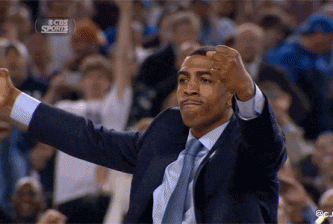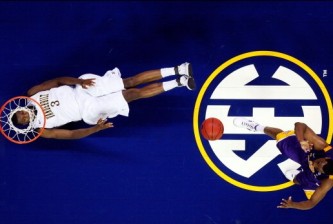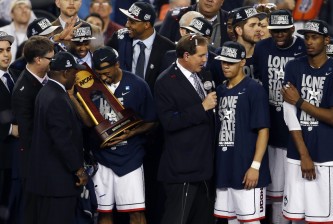
I was lucky enough to go to college. I spent four years at Florida State (and would have stayed longer if I were smarter). But I went through school, lived it up while also making grades, and graduated. Then I was on to graduate school. I didn't stay at Florida State – even though I applied there and was accepted – but rather I moved, or transferred, to a private college in Boston.
That story is completely unremarkable to me, as it should be to you. I got a degree. I went to graduate school. Big deal.
The big deal – apparently – is that it's not a big deal. It would never register to someone to think that leaving FSU for a new college after I received my undergrad was at all noteworthy.
But I wasn't a college basketball player. And herein lies the difference.
College basketball players transfer. For the purpose of this exercise forget about guys like Katin Reinhardt who transfer after their freshman year in order to get a more favorable role. Forget guys like Sheldon Jeter who transfer after their freshman year to be closer to their family. Focus on guys who had the same piece of paper I did – a degree. This degree gives them a waiver that allows them to transfer and then play immediately without having to sit out a year. And coaches are getting vocal about how much they despise that waiver.
"The rule in most cases is not being used as intended and is clearly adding to the widespread free agency in college basketball," Arizona State coach Herb Sendek told ESPN. Jim Boeheim talked about how the original rule is being subverted. "We've just got into an area of unintended consequences," Boeheim said. "The rule was for if a kid really wanted a different academic program. Now it has gotten to be a strictly playing situation."
Which brings me to Antonio Barton.
Barton has played three seasons at Memphis. Each year his minutes went down. He peaked at 62% of the minutes as a freshman, played 53% as a junior, and dropped this year to 30%. But, all that time, he attended classes and is set to graduate this summer. And now he's transferring across the state to the University of Tennessee.
His scholarship to Memphis – in case you're wondering – was like 99% of all athletic scholarships in that it was renewed annually (a few scholarships are 2-year deals). So it was offered and then twice renewed. And Barton smartly took care of the academic side of the scholarship after those renewals and got his degree.
Now he's moving to a new university for graduate school. Just like I did. So what's the problem?
Is it that he's somehow subverting the rule (which requires that the player enroll in a major not offered at their current institution) by entering grad school into some random major? Is it that players should be wedded to one school for their career?
I can't even imagine what the objections might be, I only know that they are ridiculous. Get over it. Antonio Barton just spent three years at Memphis. He and his teammates won enough games that head coach Josh Pastner's salary was raised to $2.65 million. He went to class. He graduated. And now coaches like Herb Sendek and Jim Boeheim want to complain about it?
Those coaches own kids can transfer all they want. You and I can transfer. Hell, Pastner and Boeheim could take a new job tomorrow. But student athletes being able to play without sitting out a season after they've received their degrees? Gotta draw the line somewhere, right?






















